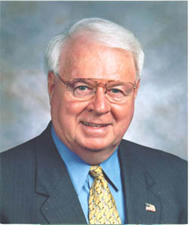From the Desk of Jack Healy
New England Manufacturing’s Competitive Advantage
By Jack Healy, Director of Operations, MassMEP [email protected]
 |
Jack Healy –
A Voice for Manufacturing in Massachusetts |
When visiting large manufacturing firms in New England, you often see historical pictures of the company’s past, but you never see renderings or plans for the company’s future. The obvious conclusion is that New England’s universally high operating costs don’t offer much of a future for manufacturing enterprises over 1,000 employees.
This is unfortunate on many levels, especially for the thousands of small New England manufacturers and their supply chains that have tied their future to these large OEM’s…that are disappearing.
Manufacturing Census of New England Firms Over 1,000 Employees*
| State |
2000 |
2012 |
% of Change |
| Connecticut |
18 |
6 |
-67 |
| Massachusetts |
35 |
12 |
-66 |
| New Hampshire |
4 |
2 |
-50 |
| Rhode Island |
3 |
2 |
-33 |
| Vermont |
2 |
3 |
+50 |
| Maine |
9 |
2 |
-78 |
| Totals |
71 |
27 |
-62 |
Source: County Business Patterns
The loss of these large firms represents an overall loss to the economic base of the New England manufacturing economy. These are, and were, the firms that forced the development of new materials, processes, and products within their supplier bases that made New England’s manufacturing so unique. The big question is…what will replace the virtual manufacturing cycle that existed in New England for so many years between the large manufactures, that have now been substantially reduced, and their supply base of the thousands of small manufacturing enterprises?
Recent surveys of the small manufacturing economy in Massachusetts conducted by RTI International indicate that 21% of the firms surveyed reported flat revenues over the past three years and an additional 21% reported revenue declines. From the firms expressing declining revenues, the top reasons cited were the recession and declining customers.
The effects of this loss of large OEMs in Massachusetts impacts the economic drivers for the state to where we now have only 50 manufacturers with more than 500 employees. This low number is dramatic in that it has forced their suppliers (38% of small manufacturers, per RTI) to reposition themselves. While other small manufacturers outside the state are focusing on price as their leading differentiator, Massachusetts’ small manufacturers have been forced to focus on innovation to differentiate their products and services.
|
Figure 1. Marty Jones, President and CEO, MassDevelopment |
Technology Acceleration
Recognizing this and realizing the economic importance of manufacturing to the state’s economy, MassDevelopment has initiated a technology acceleration program of "Manufacturing Innovation Grants." These grants are designed to support the needs of the small manufacturers who are looking to integrate new technologies into their products, processes, and business models that either solve manufacturing problems or offer new business opportunities.
"Massachusetts has all the right elements for a strong manufacturing sector: innovative new and established companies, a supportive public-private coalition of industry champions, and higher education institutions that are preparing the future workforce," said Marty Jones, MassDevelopment President and CEO. "The Manufacturing Innovation Grants program links these elements, connecting growing companies with Innovation Centers to provide affordable access to expertise and equipment—which in turn strengthens the Massachusetts manufacturing sector as a whole."
Innovation at Meridian Industrial Group
Typical of these grants was one provided to Meridian Industrial Group, a fast growing machine shop, owned by Steve Grande which is described in the attached video. Grande, President of the firm, accessed the services of CCAT, one of four Innovation Grant providers, for assistance in repairing a damaged part by adding back material through a 3D application.
CCAT, with their connections in the aerospace industry and the credibility they had earned could convince the Meriden’s client that the Additive Manufacturing (3-D Printing) process would create a stronger bond than the original metal (Ti-64 Titanium), enabling all of the parties to save money and save time.
This is typical of the needs of the small manufacturers. Introducing them to new technologies that will solve their problems is a sure methodology to provide a competitive advantage that will support their continued growth.
Anyone interested in the opportunity of accessing an innovation grant and improving your competitive advantage can do so by contacting any of the providers listed on the offering sheet or by contacting Peter Russo at 774-329-9159 or [email protected]
—–
Have an Opinion?
Have an opinion to share? Send a Letter to the Editor.
|
